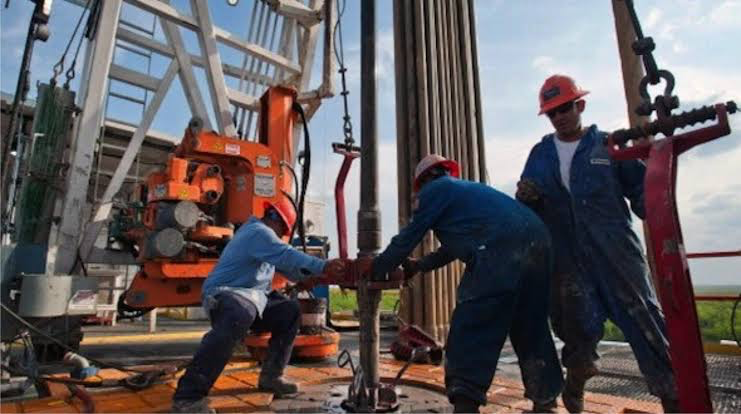Nigeria’s refinery sector is grappling with a severe crisis as disputes between oil producers and refinery owners escalate. The crux of the problem lies in the inability of the Nigerian Upstream Petroleum Regulatory Commission (NUPRC) to enforce Domestic Crude Oil Supply Obligations (DCSO).
The Dangote Refinery and the Crude Oil Refinery Owners Association of Nigeria (CORAN) recently voiced concerns, accusing International Oil Companies (IOCs) of obstructing local operators. These accusations have highlighted flaws in Nigeria’s refinery approval process and the contractual agreements required to secure feedstock.
The Federal Government’s decision to allow the Nigerian National Petroleum Company Limited (NNPCL) to take a $3.3 billion crude oil loan from the African Export-Import Bank (Afreximbank) has also raised eyebrows. The loan agreement entails repaying 164.25 million barrels of crude oil, valued at $14.6 billion at current prices.
In 2013, when Dangote announced financial plans to build its refinery, Nigeria’s crude oil production was around two million barrels per day (bpd). This has since dropped to 1.2 million bpd. If NNPCL takes its 445,000 bpd for its refineries, the country cannot guarantee 650,000 bpd to Dangote. The upcoming BUA Refinery and other modular refiners will face similar issues.
Devakumar Edwin, Vice President of Oil and Gas at Dangote Group, stated that IOCs are demanding an additional $6 per barrel above market price. He accused them of deliberately frustrating efforts to procure local crude, either by asking for excessive premiums or claiming unavailability.
Aliko Dangote, Chairman of Dangote Group, expressed frustration over the IOCs’ reluctance to supply crude. He noted that while NNPCL is trying its best, IOCs prefer exporting crude over local sales.
Energy expert Ademola Adigun countered these claims, suggesting that Nigeria’s crude supply is simply insufficient. He emphasized the need for increased production and proper implementation of the DCSO by NUPRC.
Nigeria’s crude oil is among the best globally, commanding higher prices than U.S. WTI and UK Brent. However, Dangote’s refinery, designed to process various crude types, might opt for cheaper imported crude for profitability.
Currently, the Dangote Refinery relies on imported crude, mainly from the U.S. The BUA Refinery will need about 200,000 bpd when operational, while NNPCL’s refineries and modular refineries require additional supply.
Despite NUPRC’s efforts to enforce the DCSO, the current situation hampers its effectiveness. The commission can fine defaulting IOCs $10,000 and impose a penalty of 50% of their fiscal price per barrel of undelivered crude. However, producers can provide valid reasons for non-compliance.
Oil producers have cited unresolved commercial issues, logistical challenges, and concerns over data security. They also question the financial stability of local refiners to sustain crude purchases.
Nigeria’s oil reserves are spread across deepwater, offshore, swamp, and land regions. Joint Venture Agreements and Production Sharing Contracts (PSC) govern these reserves, with NNPCL holding a significant share. However, deepwater production, predominantly handled by IOCs, faces numerous threats.
A report by the Nigeria Extractive Industries Transparency Initiative (NEITI) revealed that only 12 out of 35 PSC blocks produced oil in 2021. The last major IOC investment was TotalEnergies’ Egina project over a decade ago, with recent investment limited to the $550 million Ubeta project.
Matthieu Bouyer, Country Chairman of TotalEnergies Nigeria, highlighted issues with increased levies, fiscal changes, and high costs affecting deepwater projects. Many IOCs are divesting due to crude oil theft, insecurity in the Niger Delta, and other sector challenges.
Diran Fawibe, Group Chairman/CEO at International Energy Services Limited, criticized Dangote for not securing a feedstock plan during the refinery’s development. He stressed the importance of agreements with producers and a detailed feasibility study for refinery projects.
Fawibe urged NNPCL to mediate between refiners and producers. He emphasized that NNPCL, controlling a substantial portion of Nigeria’s crude, should ensure a steady supply to local refineries.
Professor Segun Ajibola, former President of the Chartered Institute of Bankers of Nigeria, warned that Nigeria’s current crude production would be overstretched with more operational refineries. He called for addressing upstream challenges to boost production capacity to three million bpd.
Ajibola noted that effective refinery operations could save Nigeria significant foreign exchange used for importing refined products. He urged regulatory agencies to protect Dangote Refinery and revive the country’s public refineries.
Source: The Guardian



